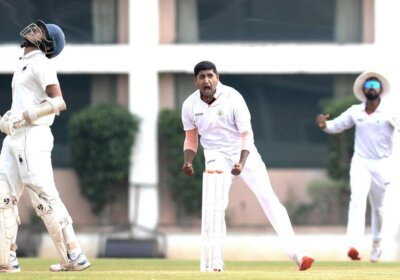Four cubs have been born to a Namibian cheetah at MP’s Kuno National Park
At the Kuno National Park in Madhya Pradesh, one of the Namibian cheetahs gave birth to four cubs.
Union Minister Bhupender Yadav confirmed the news, and he also shared photos of the cubs on Twitter.
He wrote on Twitter, “India, congratulations. During Amrit Kaal, we witnessed a watershed moment in wildlife conservation history! I’m happy to report that one of the cheetahs that were relocated to India on September 17, 2022, gave birth to four cubs”.
The news comes just three days after one of the cheetahs, Sasha, died from a kidney condition.
Sasha was relocated from the African nation to Madhya Pradesh’s Kuno National Park (KNP) along with seven other large cats.
Project Cheetah, which aims to repopulate India with the fastest land animal after it went extinct seven decades ago, suffered a setback with the death of the more than four-and-a-half-year-old female cat.
According to Yadvendradev Jhala, the scientist who has been monitoring the cheetahs in large fenced enclosures, said pairing and mating behavior for Sasha, Siyaya, and Asha had been observed in late December. Cheetahs have a gestation period of 90 to 93 days. Siyaya has already delivered four cubs and Asha is due between April 15 and 30, he said.
According to Jhala, a former professor and dean at the Wildlife Institute of India, Dehradun, who has served as the project’s lead scientist since it was first proposed in 2009, “We’re about to get the first Indian-born cheetahs in the wild after seven decades.”
The three captive-reared animals were sent because they were “the best candidates” from a genetic standpoint as “founder stock,” according to the US-based Cheetah Conservation Fund (CCF), which manages some cheetah populations in Namibia and facilitated the transfer of the eight into India.
According to Adrian Tordiffe, a cheetah expert at the University of Pretoria in South Africa who has been overseeing the India project, cheetahs that become pregnant early in life have better lifetime reproductive rates. “Early births of cheetah cubs in the project would suggest that the cats are interacting normally. First-time pregnancies aren’t always challenging; it depends on the mother’s level of stress.”
The KNP in the Sheopur district is home to eight cheetahs that were transported from Namibia in the middle of September of last year.
On September 17, Prime Minister Narendra Modi attended a ceremony where the eight Namibian cheetahs—five female and three male—were released into their KNP enclosures.
The fastest land animal was officially declared extinct in India in 1952 after the last cheetah died in 1947 in the Koriya district of modern-day Chhattisgarh.
For more such updates keep reading Panchayiti























Pingback: What role does radio collars have to play in Kuno Cheetah deaths?